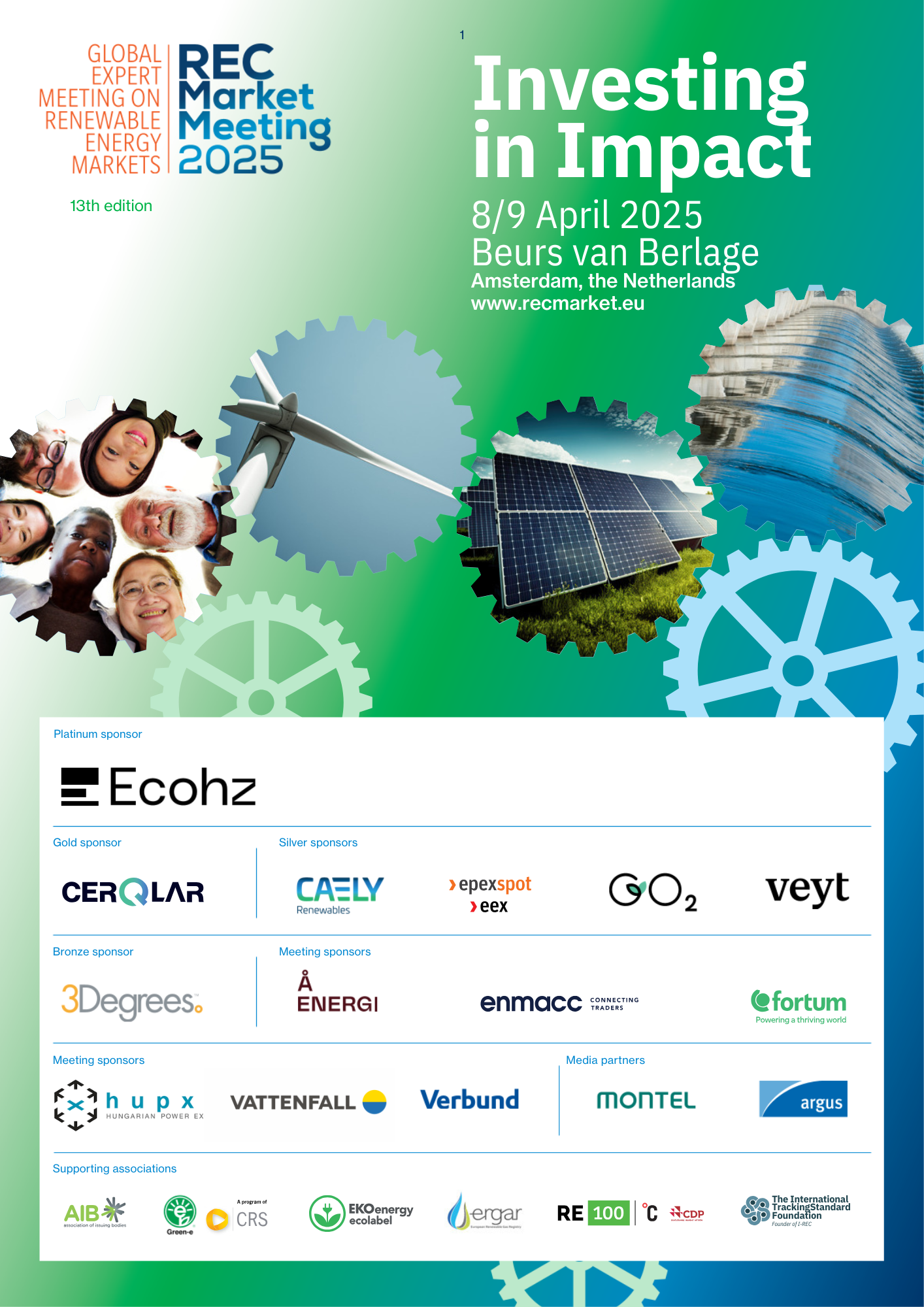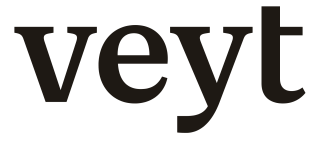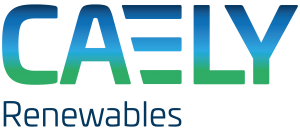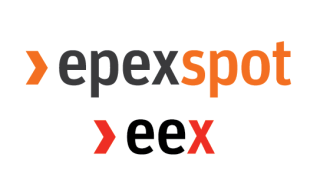Building on the success of previous years, we plan to maximise the space offered by the Beurs van Berlage for the conference by including a complete renewable gas stream in our programme. The streams will provide sessions for delegates with varying levels of experience, including deep dives for experts, overview sessions for those looking to learn more, and introductory sessions for those who are new to renewable energy markets. By incorporating a renewable gas stream, we are confident that we will address subjects that appeal to the interests of a greater number of delegates from more countries than ever before. During the parallel sessions that take place between the opening and closing keynote speeches, each session will examine how markets can facilitate significant investments in renewable energy. The goal is to drive crucial reductions in emissions. Buy your ticket today to join the largest gathering of renewable energy market participants worldwide!
Delve into sessions across four streams focusing on European and global market developments, legislative updates, and foundational knowledge in renewable energy.
Stream A | Deep-dive
Designed for experienced professionals in the renewables market, these sessions will provide in-depth coverage of specific regulatory and market topics. Delegates will have the opportunity to get answers to their most challenging questions.
Stream B | Overview
These sessions are designed to help delegates gain a better understanding of a particular market or regulatory development. The sessions will provide an introduction, followed by insights into how these topics may develop in the future.
Stream C | Renewable gas
EAC markets are expanding rapidly, with particular growth in the area of renewable gases. RMM25 will include a dedicated stream that focuses on exploring the history, current status and future prospects of renewable gas markets. We offer the C-stream sessions in close collaboration with ERGaR, the European Renewable Gas Registry.
Stream D | EACs in practice
We have specifically designed these sessions to provide valuable information for delegates who are new to the renewable energy market. The sessions offer clear explanations of essential elements and provide a safe space for asking questions. We offer the D-stream sessions in close collaboration with EKOenergy.
Please note that the times of these sessions may be subject to change.
You can download the RMM2025 Programme below.

Delegates will learn about the three main energy tracking systems: European Guarantees of Origin (GOs), North American RECs, and the global I-REC. This session will tailor itself to the need sand interest of the attending delegates. It will cover introductory information where necessary and delve into greater depth and detail as requested. The discussion will cover the size and value of the primary energy certificate markets, the distinct regulations and practices of these certificate systems and markets, and the methods used to monitor the environmental impact of products that move between them.




During this academy session, delegates will receive a detailed overview of how energy tracking systems currently function, from issuance through registries to cancellations. Expert speakers will explain why many current energy tracking systems need modernising, and how we could and should achieve that modernisation. This session will help delegates prepare for the future of renewable energy markets considering the growing demands they face, which include rising volumes and prices.




RECS Energy Certificate Association has been developing, analysing, and advocating for Energy Attribute Certificate (EAC) markets on behalf of members for over 20 years. In this session, the Association's leaders will present their policy priorities for the future development of mature EAC markets. Those attending this session will have the opportunity to gain a comprehensive understanding of RECS' policy platform, with special emphasis on its flagship policy demand of full consumption disclosure (FCD). Furthermore, during this session, RECS experts will cover other topics such as supporting effective purchasing decisions, transitioning to monthly disclosure periods, and ensuring timestamping on all Energy Attribute Certificates.





Through this session delegates can learn about the design and development of GO systems for heating and cooling. Energy systems are not limited to tracking the attributes of renewable electricity. There is a growing requirement and desire to track all forms of energy generation and carriers. Attendees of this session will gain valuable insights from industry experts who will outline the fundamental principles of GO systems for heating and cooling. The speakers in this session will also explain the legal, procedural, and technical implementation options for these emergent schemes.


Empowering energy consumers with the necessary knowledge and confidence to purchase renewable energy is a fundamental part of RECS' mission as the world's largest association for participants in renewable energy markets. In this exclusive session, energy buyer delegates will learn the basics of buying renewable energy. Topics include different procurement models, voluntary and mandatory disclosure rules, and various certificate types and their supplementary labels. In short, this will be a crash course for anyone considering going renewable. This session will be particularly interesting for employees of companies who are not yet buying renewable energy or want to develop their renewable energy procurement. This session is exclusively for energy buyers including RE100 companies who can attend for free.








Renewable energy markets and energy attribute certificates have long proven their ability to track the ownership of energy attributes robustly and reliably from producer to consumer. By doing this, they enable consumers to choose the type of energy they prefer to purchase and also give renewable generators supplementary income. But what more could, and should, they be doing? In this session, a panel of industry experts will make the case for investing in impact, not only for renewables, but also for people and the planet.






European renewable energy markets have been through a turbulent time in recent years. From regulatory changes to price fluctuations and from accusations of greenwashing to proposals for radical reform. During this session, speakers who are knowledgeable and experienced will discuss if the current approach of making incremental improvements in Europe’s renewable energy markets is enough or if we need to completely reshape these markets to achieve their potential impact.





During this session, expert speakers will discuss whether consumers are contributing enough towards promoting the growth of renewables through energy attribute markets. Ours is a market with a mission – to help drive the energy transition, cut emissions, and tackle climate change. Although all markets must be economically sound, renewables markets have the potential to provide social and environmental advantages. Can consumers shape the market or does the market shape them? Alternatively, should legislators implement further regulations to ensure that renewables markets meet our shared objectives?





The biomethane certification process can appear complicated due to the existence of multiple certificates serving different objectives. There are Guarantees of Origin (GOs), Proofs of Sustainability (PoS), and in some countries, national certificates. Understanding the roles and differences of each certificate can be challenging, especially for those who are new to the market. In this session, expert speakers will introduce the different biomethane attribute certificates and explain the practical aspects of how to use them. The panel will discuss how market participants and regulators could further develop this important sector.





This session aims to introduce newcomers to renewable electricity markets to the fundamental concept of attribute tracking. Specifically, speakers in this session will explain why attribute tracking is important and will cover the first step in the process: how electricity certificates are issued. This session will kick-start the D-stream and prepare participants for the following sessions by laying the foundation for tracking energy attributes.





Full consumption disclosure is RECS’ primary policy demand for the future of renewable energy markets, and for good reason. Providing complete information about the energy we use promotes transparency, enabling consumers to make informed choices and creating a level playing field for all types of energy. Delegates attending this session will learn how full disclosure can shift energy demand from fossil fuels to renewable energy sources. This shift in demand will help drive the energy transition by empowering consumers.





India is a vast country, with a population of almost 1.5 billion people, and it is home to a rich diversity of cultures and communities. Maintaining the economy that Indian society relies on currently requires a substantial amount of coal power. Unfortunately, this has contributed to a 180% increase in India’s emissions over the past 20 years. Therefore, India and the rest of the world face the challenge of rapidly transitioning the country to renewable energy sources. During this session, a panel of specialists will explore whether India’s renewable energy market is on track for success.




The biomethane market can be difficult to understand due to various certificates, an uncoordinated European market, and constantly changing support schemes in each country. During this session, delegates will gain key insights into the recent developments in biomethane volumes and prices over the past year. Experts will explain the major trends that we have already observed as well as highlight upcoming changes that may impact the future.





The second D-stream session introduces another crucial aspect of EAC systems and markets – the way market participants trade energy certificates. Attending delegates will learn about bundled and unbundled trades, commodities, products, various market facilitators, and the challenges these market participants are facing now and may face in the future. If you are new to buying or selling EACs, this is the perfect place to learn how the market operates.





Policymakers in the EU and other regions are setting ambitious goals for the development of ‘green’ hydrogen. Meeting these targets for growth will require vast quantities of renewable energy. However, relying solely on current sources of generation could lead to a situation where ‘green’ hydrogen producers crowd out other consumers of renewable energy. How will the rapidly growing renewable hydrogen markets fit into the larger context of the energy transition? Can we efficiently manage the production and trade of renewable hydrogen across diverse markets? Join us in this session to uncover the answers to these pressing questions and more.




To demonstrate their commitment to making impactful investments, buyers of renewable energy can opt to purchase Energy Attribute Certificates (EACs) with added labels indicating specific social or environmental benefits. Participants will explore whether these labels help to drive corporate procurement decisions and, if so, how they shape these choices. During this session, delegates will learn about the functionality of EAC labels, their significance in the renewable energy markets, and whether they can enhance the voluntary procurement of renewable energy by generating additional impacts.





Energy market participants anticipate that the Union Database (UDB) will bring significant changes to how biomethane Proofs of Sustainability (PoS) are tracked. The use of IT infrastructure by the UDB will shift biomethane PoS trading from primarily relying on email exchanges to potentially involving a complex and challenging system to navigate. Those who attend this session will gain valuable insights from industry insiders, helping them to understand the current status of the UDB and its expected impact on the renewable gas market.





During this session, speakers will provide additional information about energy certificates to D-stream participants who have already learned the basics of issuing and trading Energy Attribute Certificates (EACs). This session will explain who uses these certificates, their motives for doing so, and the significant impact these decisions can have on energy markets. In addition, the experienced presenters of the session will discuss the distinctions between EACs and other environmental tools, such as carbon offsets. That concludes the first day of sessions introducing the fundamentals of Energy Attribute Certificates.




During our traditional review session at the end of Day 1, the RECS leadership team will reflect on the conference thus far, with a particular focus on the central theme of ‘investing in impact’. The speakers will also review a dynamic and exciting year in energy certificate markets before looking ahead to the possibility of more change to come. We will inform delegates of the significant accomplishments of RECS on behalf of its members during the past year as well as the organisation’s plans and objectives for the future. This high-level session ends Day 1 of the conference and aims to provide plenty of topics for conversation during the evening’s social events.




The volumes and prices session has consistently been the best-attended part of previous REC Market Meetings. Building on this success, we will continue to provide illuminating market insights for conference delegates. This session will focus exclusively on the European market and speakers will share their expectations for GO volumes and prices over the next 12 months. Delegates attending this session will get a clear overview of the state of the market and the certificates that underpin it.



EAC markets continue to grow in volume and prices continue to fluctuate. In highly dynamic markets, even experienced market participants can become overwhelmed by the plethora of options available to buyers and sellers alike. During this session, legal and business experts will discuss the necessity and advantages of using standardised contracts like the ones that RECS provides to its members for EECS, GOs, European biomethane, and I-REC. Delegates who attend this session will learn how to use these contracts and how they can facilitate the development of renewable energy markets.





EU leaders have set an ambitious goal to produce 35bcm of biomethane annually by 2030. Those attending this session will learn whether the current plans at both the EU and national levels are sufficient to achieve this goal. Experienced speakers will discuss the current measures in place and those planned for the future, providing an overview of how they expect biomethane markets to develop, and the role of these markets in the energy transition.





Just as energy markets cover different geographies and jurisdictions, so do their related energy attribute certificate schemes and markets. In this session, expert speakers will define the boundaries of these markets, explain how and why they are established, and discuss the ways in which they can affect the consumption, production, and trade of renewable energy. During the session, delegates will learn about time limitations for certificates, including their validity and expiration periods.





While session 6A focused solely on European volumes and prices, this session (7A) will examine the development of renewables markets around the world. Speakers in this session will be able to provide details on existing factors influencing prices and volumes in different regions, including their expectations for certificates such as US RECS and I-RECs. This session may be of particular interest for delegates who want to learn more about renewables markets outside of Europe.




The review and potential revision of the Greenhouse Gas Protocol is finally in full swing. Has there been any increase in clarity or certainty regarding the potential impact of these changes on EAC systems and global markets? During this session, experts will inform delegates about the latest developments in the review process, including the proposals for changes that are currently under active consideration. Additionally, this session’s speakers will discuss the prospects for the future of this important initiative.




Different countries support biomethane production and consumption in different ways. There are a variety of options available, from subsidies to blending obligations, each with its advantages and challenges. This session will focus on the current support mechanisms in place in some of the key national markets, and experts’ expectations for the future. Those attending this session will gain insights into the lessons from countries that have supported biomethane production and learn valuable lessons from their successes and challenges.




During the final session of the D-stream series on the basics of energy attribute certificate markets and systems, experts will provide an in-depth exploration of additional labels, tools and services that can amplify the impact of renewable energy markets. During the event, delegates will gain an understanding of how both producers and consumers can use various tools to facilitate, shape and enhance the role of renewable markets in expediting the transition towards clean energy.




If you didn’t spend too much time networking and instead attended the sessions, you will have probably noticed that our focus was on how renewable energy markets can drive impactful investments. During this final keynote session, delegates will engage in a lively, electrifying debate on whether a voluntary approach is sufficient for most renewables markets, or if stronger mandates are necessary. Should regulators mandate the consumption of renewables? Should EU law require energy producers to invest in renewables? Delegates will leave the conference brimming with insightful ideas, feeling inspired to make their mark and motivated to return in 2026!





